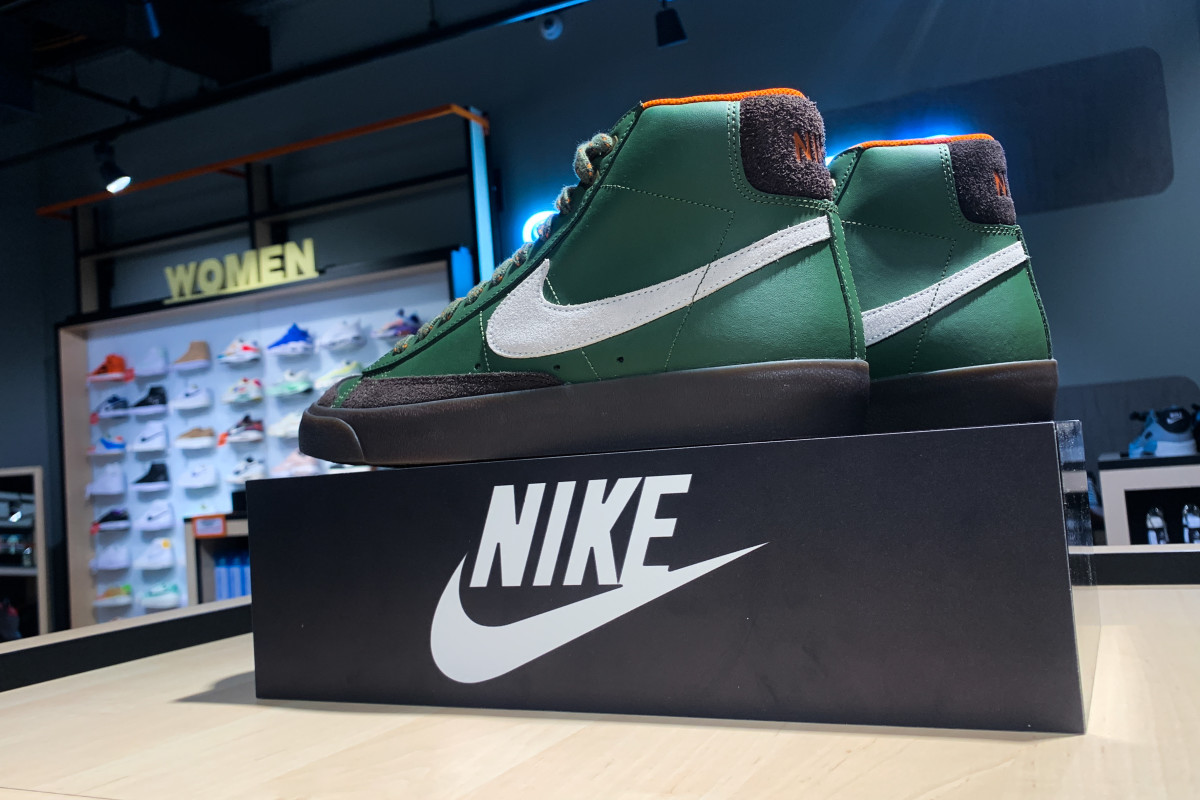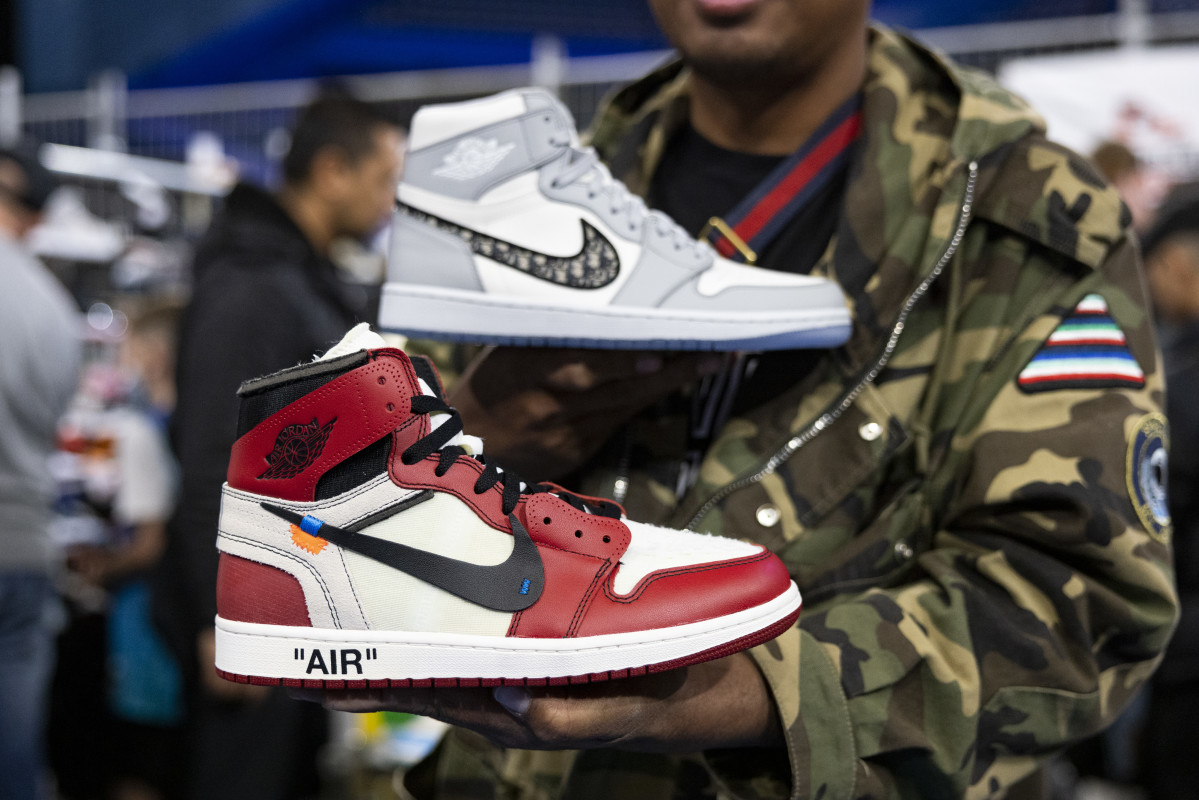
The latest and greatest in performance athletic clothing and shoes are sold to customers with the idea of providing an extra edge against their actual and perceived competitors, but there is one particular sneaker from Nike’s past that has fueled a loyal base of fanatics all over the world decades after its introduction.
Long before Mars Blackmon declared that “it’s gotta be the shoes” in a 1991 commercial, the Nike (NKE) -) Air Jordan has been steeped in sneaker folklore. With six NBA championships, an extensive highlight reel and millions of fans spanning generations, Michael Jordan’s line of signature sneakers has more than enough credibility to back up the hype.
Related: Nike has an unusual new way to sell Air Jordans
However, data seems to suggest that the luster might be fading and it can take Nike down with it too.
Analysts from analytics firm Altan Insights that the value of certain Air Jordan models on the secondary resale market have been slipping. According to data from resale platform StockX, the average premium over the retail price paid for one of the most sought after models - the Nike Air Jordan 1 Retro High - has fallen from 61% in 2020 to 4% today.

This drop comes at a time when Americans are saving more and cutting back on discretionary spending on items like clothes and shoes in favor of more essential goods. Sales on StockX do not directly impact the revenue of Nike, but analysts argue that the value of its shoes on such resale platforms can measure customer sentiment, behavior towards a certain shoe or brand, as well as discretionary spending behaviors.
Shoes from Nike rank among the most desired on StockX, but data from the resale platform reports that shoes by more “performance”-oriented brands like the Japanese running brand Asics (ASCCF) -) and French outdoor brand Salomon have been growing in sales on the platform year-over-year. At the same time, established brick and mortar retailers like Foot Locker (FL) -) have seen the demand for performance-oriented sneakers from the likes of the Swiss-based On Running (ONON) -) and Deckers (DECK) -) -owned Hoka rise, while “lifestyle” sneakers like retro Air Jordans have softened.
More Retail:
- ‘Too pretty’ Home Depot worker faces backlash after viral mirror post
- A classic kitchenware brand files for Chapter 11 bankruptcy
- Who’s running The Gap? With no CEO, retailer hurtles towards crisis
Nike CEO John Donahue said in a statement that sales of performance models from its Jordan Brand have outpaced its retro styles, such as the Air Jordan 1s, but also noted that the brand was "well on its way to becoming the second largest footwear brand in North America.” In its last earnings report, Nike reported slower growth, as sales in North America rose only 5% in its fourth quarter, its slowest increase.
As most sneaker shoppers look to running shoes as a more comfortable, practical everyday shoe, younger brands like the Roger Federer-backed On Running and the suburban champion Hoka have been slowly eating away at the pie that Nike held the biggest slice of. Jane Hail & Associates senior research analyst Jessica Ramirez noted that investors are worried that Nike has not kept pace with the aforementioned brands.
"The space within the sport has gotten extremely competitive and shoppers now have a lot of good brands to choose from,” she said.
Action Alerts PLUS offers expert portfolio guidance to help you make informed investing decisions. Sign up now.







